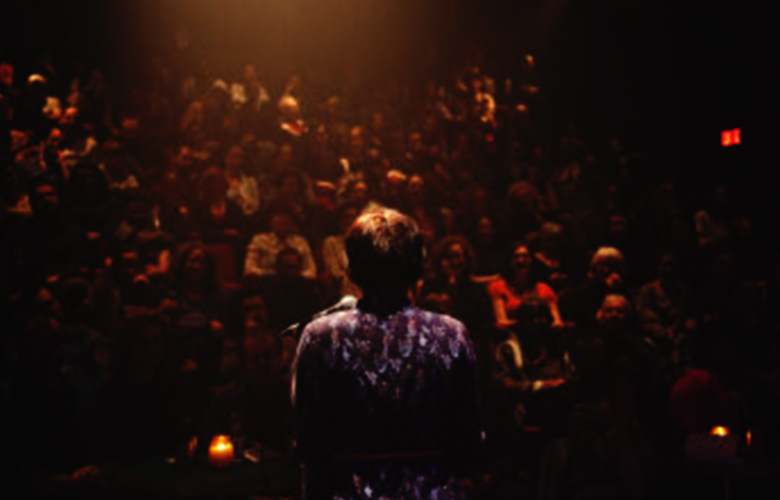
Last spring, I had the pleasure of being invited to sit on a panel on new translation as part of the Pan-Canadian Forum on Contemporary Writing for the Stage held during Montreal’s Festival du Jamais Lu. After a long Nova Scotia winter, it was a dream to be back in the wonderful city of Montreal as the spring sun came out.
Like much European writing, Quebecois texts are written to engage the artists involved as well as their audience. Textual presentation does not define production but engages in theatrical imagination and expression, embracing metaphor as much as English-Language writing tends to embrace the well-made play. In short, the text is often the trigger for a larger theatrical conversation.
The result of unique circumstances, it was developed in part to allow Quebecois and Franco-Canadian artists to write for French touring markets without sacrificing their own identity and a theatrical equivalent to the remarkable physical theatre and literature from the Franco-Canadian communities. The Langue D’Auteur is a textual space free of rules. The poetic and expressionistic exist side by side with gritty realism, and the mundane often becomes the fantastical. Textually ancient words, made-up words, verse, prose, Joual (everyday Quebecois), other francophone dialects, a range of literary devices, often share the page.
Founded by artists Marcelle Dubois and Julie Gagné and cultural administrator David Lavoie to forge a relationship between today’s contemporary writers and the public, Jamais Lu, which means “never read,” supports and promotes Quebec, Canadian and international dramaturgy. It offers young and emerging artists, fresh voices and fresh approaches, a festival platform of workshops, staged readings, and community events. As its name suggests, these never-before-seen works combine levels of language, styles and forms to respond to the world in which we live. Brought to the stage by directors and actors, they have unparalleled immediacy and relevance. In short new works at their newest and most immediate relevance.
Although its 19th season is currently on hold due to the Corona Virus Pandemic, the Jamais Lu usually produces three festivals a year – one in Montreal, one in Quebec City and one in Paris.
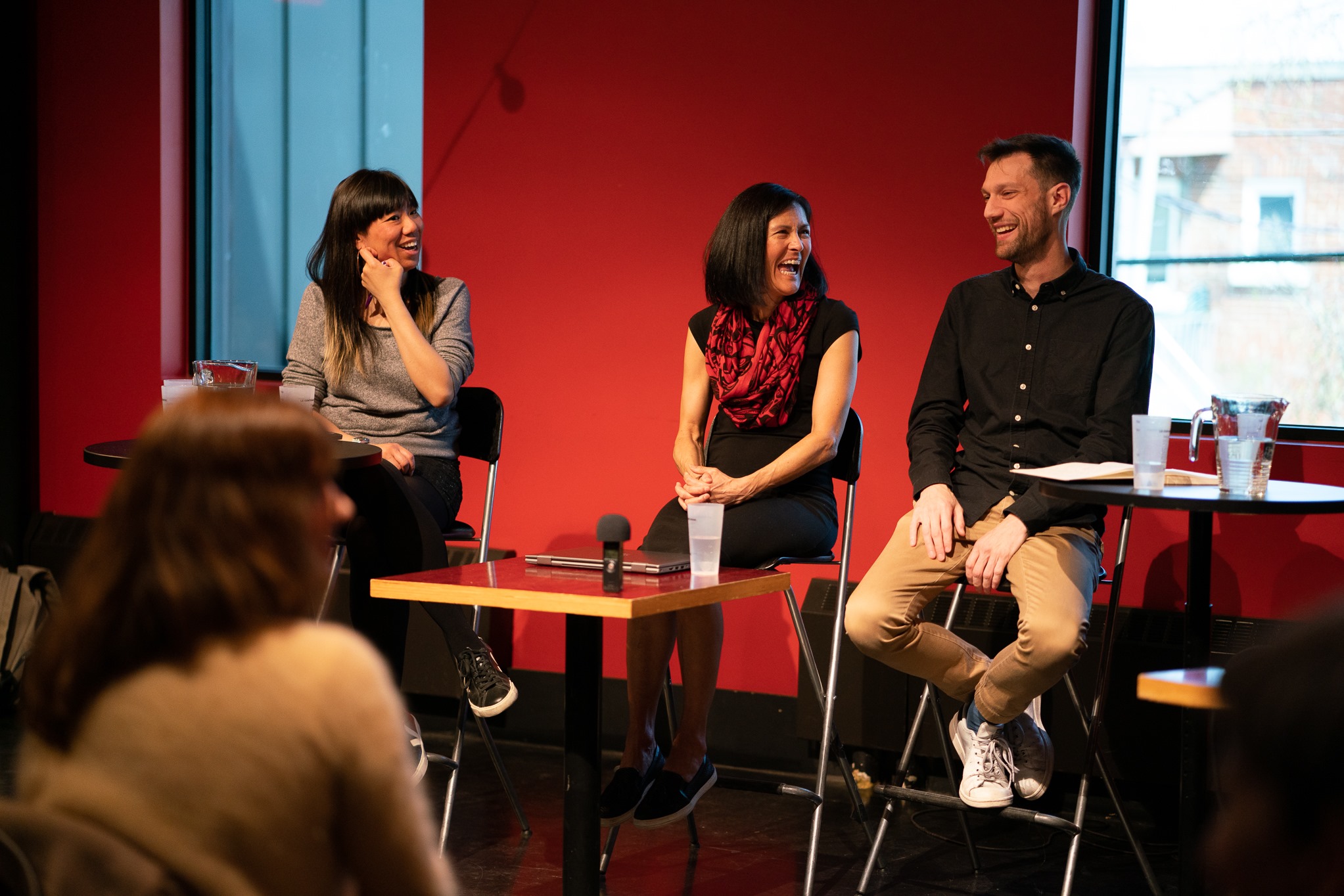
I reached out to Artistic Associate Fanny Brossard-Charbonneau and asked her a few questions on the festival and francophone new writing.
Dans vos propres mots, pourriez-vous décrire Festival Jamais Lu et ce qui est spécial à ce sujet?
Le Jamais Lu est à l’art théâtral ce que les shows live sont à la musique : un accès brut et festif aux paroles contemporaines, un portrait poétique de notre époque, un engagement de faire vivre la puissance fédératrice des mots. En tant qu’incubateur, le Festival est plus permet aux autrices et aux auteurs contemporains de faire vivre une première version d’un texte encore jamais lu. Ceci crée des soirées festives et chaleureuses, où le public n’est pas là pour juger, mais pour accueillir la proposition.
In your own words, could you briefly describe Festival du Jamais Lu and what is special about it?
Le Jamais Lu is to theatrical art what live shows are to music: raw and festive access to contemporary conversations, a poetic portrait of our time, a commitment to bring to life the unifying power of words. As an incubator, the Festival enables more and more contemporary authors to bring the first, never-before-read draft of a text to life. What this does is generate warm, festive events with an audience that is open to new ideas, rather than sitting in judgment.
Qu’est-ce qui vous a incité, vous à développer cette programmation?
Puisqu’une production théâtrale prend environ deux ans avant de passer de l’idéation à la diffusion, la plateforme du Jamais Lu permet aux artistes de faire entendre leur travail au plus vif de son actualité. Ainsi, les textes entendus au Jamais Lu témoignent souvent de l’état du monde, ses enjeux et ses questionnements.
What inspired you and the Jamais Lu team to develop this programming?
Since a theatrical production takes about two years to make the leap from idea to production, the Jamais Lu platform allows artists to give their work an airing at the very moment it is most relevant. So, the texts presented at the Jamais Lu often bear witness to the current state of the world, its issues and its challenges.
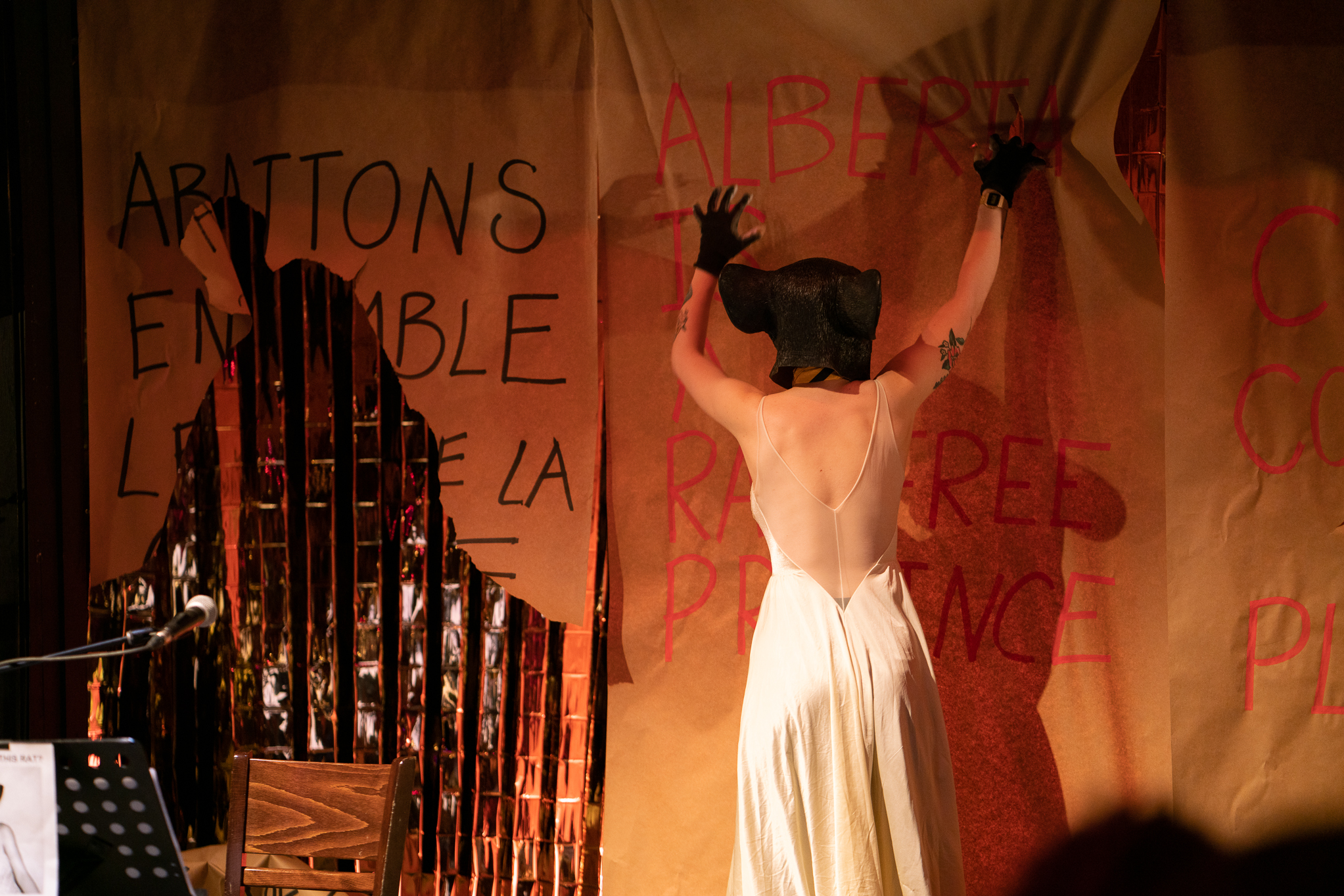
Pourquoi croyez-vous que ce genre de travail est important?
Ce n’est pas pour rien que 70% des textes présentés au Jamais Lu se retrouvent ensuite sur les scènes de théâtre du Québec, de la France et du monde entier ! Les dramaturges prennent confiance en leur projet, le peaufinent et l’ajustent selon cette première mouture. Ceci donne vie à des projets de grande qualité qui font rayonner le talent des québécois et canadiens ici et ailleurs.
Why do you believe this kind of work is important?
It’s not a coincidence that 70% of the texts presented at the Jamais Lu later end up in theatres across Quebec, France and around the whole world! Playwrights gain confidence in their projects, fine-tune them and modify them based on this initial experience. What this does is energize high-quality projects that showcase Quebecois and Canadian talent here at home and abroad.
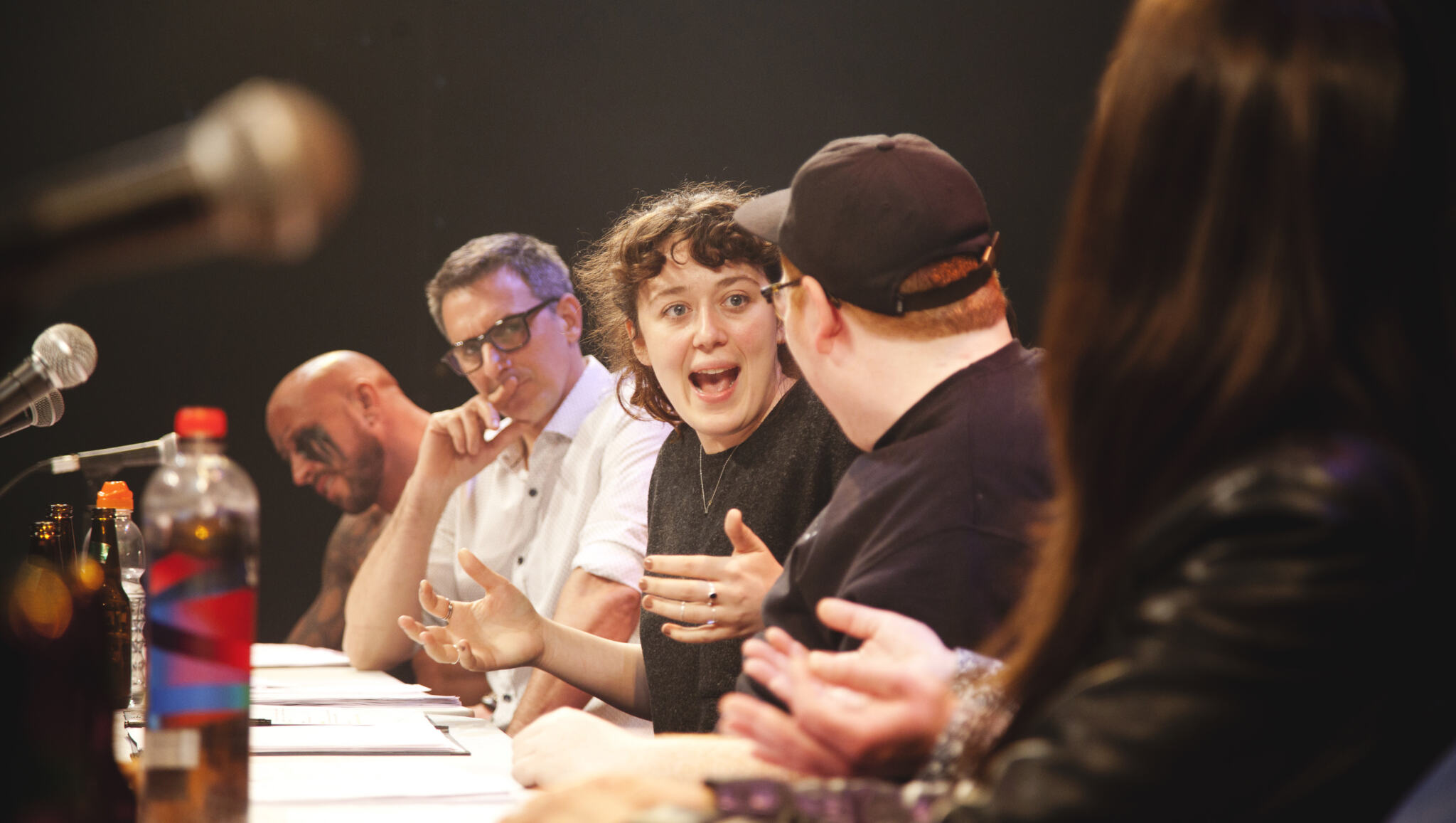
Qu’envisagez-vous pour l’avenir de Jamais Lu ?
Après avoir créé des versions du Festival du Jamais Lu à Québec et à Paris, le 20e anniversaire (2021) s’oriente vers la création de deux nouveaux projets satellites : un Jamais Lu Caraïbe et un Jamais Lu Mobile (se promenant de région en région annuellement). Ces deux nouveaux pôles nous tiennent à coeur puisqu’elles nous permettent de créer des liens entre nos différents réseaux développés dans la francophonie internationale, et consolider une grande famille artistique à l’échelle mondiale, nationale et régionale.
What do you envision for the future of Jamais Lu?
After creating versions of the Festival du Jamais Lu in Quebec City and Paris, for the 20th anniversary (2021) we are focussing on the creation of two new satellite projects: a Caribbean Jamais Lu and a Mobile Jamais Lu (moving from region to region annually). These two new projects are very near and dear to our hearts, as they allow us to establish links between the various networks we’ve established throughout the global Francophonie, and to consolidate a vast artistic family on an international, national and regional scale.
Quels ont été les plus grands défis et faits saillants?
L’un des plus grands défis du Jamais Lu, après 20 ans d’activités, est de renouveler ses “familles” d’artistes. Tournés vers la relève, nous sommes toujours à la recherche et avides de propositions audacieuses, d’univers inexplorés… Après avoir accueillis des artistes aujourd’hui établis tel qu’Annick Lefebvre, Sébastien David, Olivier Choinère, Fanny Britt, Rébecca Déraspe : nous devons toujours regarder au-delà des évidences et dénicher ces communautés qui, demain, seront sur les scènes !
What have been the biggest challenges and highlights so far?
One of the greatest challenges of the Jamais Lu, after 20 years of activities, is to rejuvenate its “families” of artists. Since we are focused on the next generation, we are always looking for bold ideas, uncharted territory… After inviting now-established artists — such as Annick Lefebvre, Sébastien David, Olivier Choinère, Fanny Britt and Rébecca Déraspe — we have to keep looking beyond the obvious choices to find the communities that will be on tomorrow’s stages!
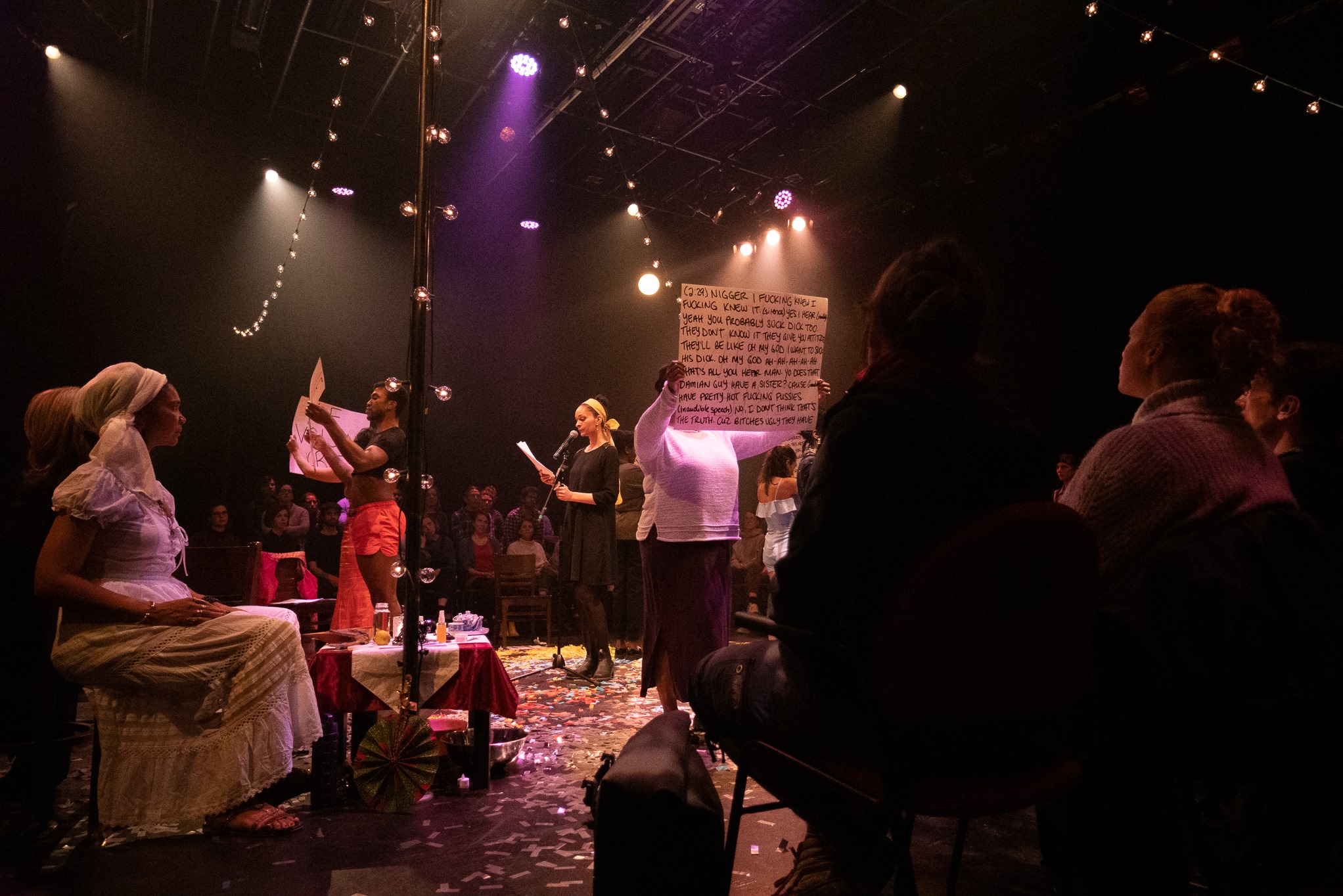
Cette année, à Montréal, l’accent a été mis sur les échanges francophones, anglophones et autochtones. Pourquoi cela était-il important pour Jamais Lu et qu’espérez-vous qu’il en a été gagné?
Chaque mouture du Festival détient une différente ligne éditoriale. Après avoir, en 2017, cherché “Le bruit de mutations” avec Marilou Craft afin d’écouter le besoin criant d’une diversité sur nos scènes, nous avons constaté que, en effet, nous ne connaissions pas l’autre, nous ne connaissons même pas notre voisin ! Les communautés linguistiques anglophones, francophones et autochtones se frôlent, et ne se connaissent pas. Par la tenue d’un Forum et la programmation de traductions de textes du Canada anglais, nous avons réfléchi ensemble. Cette initiative n’est évidemment pas suffisante pour déconstruire entièrement les murs qui subsistent, mais nous sommes aujourd’hui plus outillés et informés pour faire des pas plus fréquents vers l’autre. Un mémoire sur le Forum fut diffusé afin d’informer la communauté théâtrale de nos apprentissages, de nos questionnements et de nos recommandations ! (see link bellow)
Last year in Montreal, there was a focus on Francophone, Anglophone and Indigenous exchange. Why was this important to the Jamais Lu and what do you hope was gained by it? What were the highlights and most interesting outcome?
Each season, the Festival follows a different editorial line. In 2017, after seeking out “The sound of mutations” with Marilou Craft in response to the desperate need for diversity on our stages, we realized that, actually, we did not know each other; we didn’t even know our neighbors! The English-speaking, French-speaking and Aboriginal-language communities live side by side and yet are strangers. By holding a Forum and programming translations of Anglo-Canadian texts, we came together to reflect. This initiative is obviously not enough to break down the remaining walls completely, but we are now better equipped and informed to approach each other on a more regular basis. A brief on the Forum made the rounds throughout the theatre community so as to share the lessons learned, questions asked and recommendations offered! (see link below)
Que conseilleriez-vous aux autres artistes qui cherchent à créer des activités similaires?
Nous avons surtout réitéré le fait qu’il existe autant de réalités que d’individus. Plus nous réunissons des intervenants de profils différents, plus nous nous rapprochons d’un portrait réaliste des enjeux en cours actuellement. Afin de rejoindre toutes ces communautés et de ne pas en oublier, il faut s’entourer – à l’organisation de l’évènement – d’une équipe diversifiée. En effet, la direction artistique de cette édition Franchir les solitudes était composée de l’anglophone Alexis Diamond, l’autochtone Nahka Bertrand et le francophone Pascal Brullmans. La diversité des têtes pensantes, c’est la clé !
What would you advise other artists seeking to create similar activities?
First and foremost, we learned again and again that there are as many realities as there are individuals. The more we bring together people from different backgrounds, the closer we get to a true picture of the issues currently at play. In order to reach all these communities and not simply forget about them, we must surround ourselves – fundamentally, in the very organization of the event – with a diverse team. Actually, the artistic direction of this edition Franchir les solitudes (Bridging the solitudes) was composed of Anglophone translator and theatre artist Alexis Diamond, indigenous writer and theatre artist Nahka Bertrand and francophone theatre artist and dramaturg Pascal Brullmans. A diversity of thinking heads is the key!
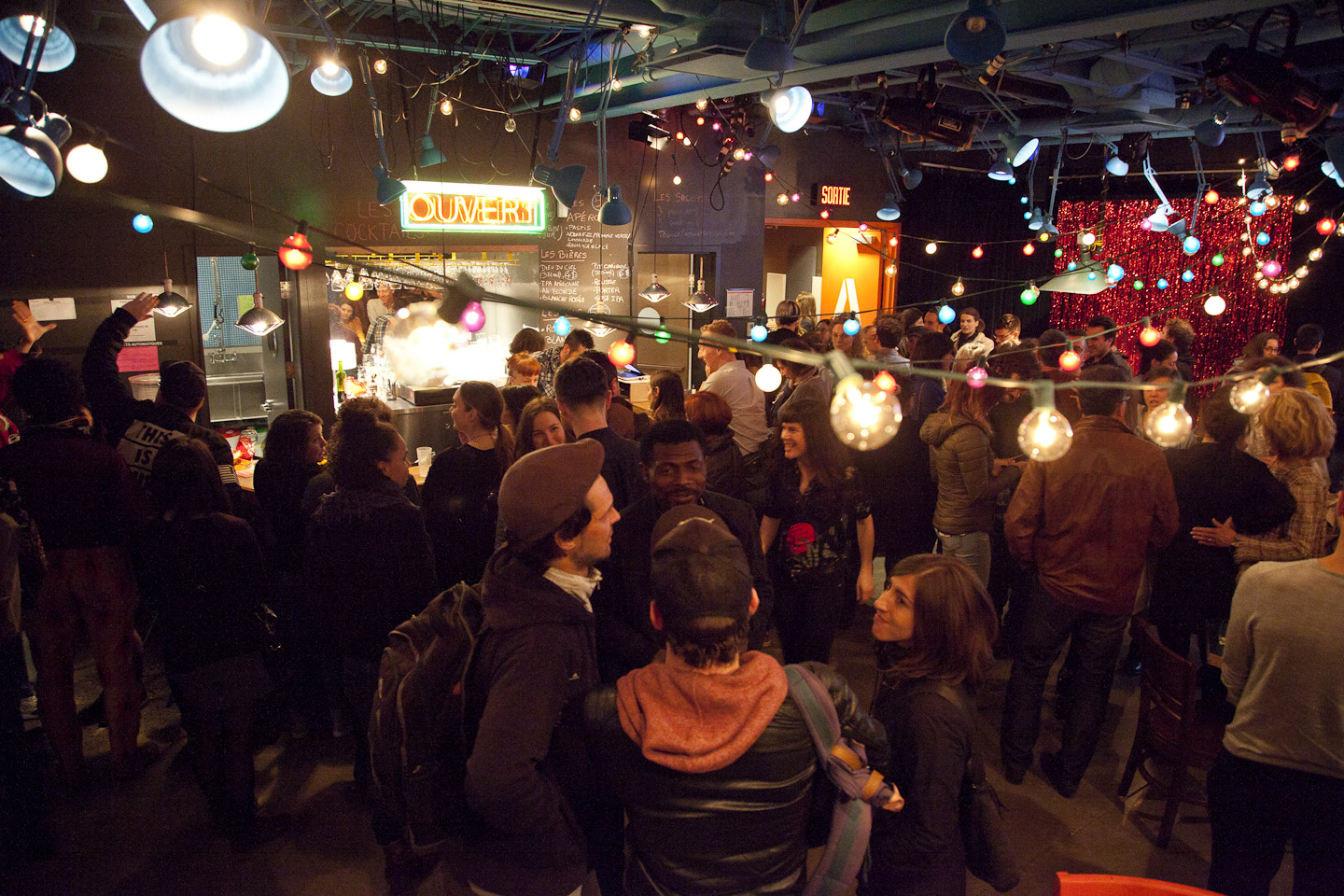
Quels conseils créatifs donneraient à nos écrivains et artistes isolément?
De ne pas se donner de la pression pour créer. Ce n’est pas parce qu’un auteur ou une autrice n’a besoin que d’un ordinateur pour écrire que la situation actuelle est favorable ! Toutefois, creuser des obsessions qui les traversent depuis longtemps, mais qu’ils n’ont jamais eu le temps d’initier peut permettre aux artistes de sortir du réel plutôt anxiogène. Faire de la lecture, tenir un journal de bord, lire tout Wikipédia : c’est peut-être l’occasion de renouveler notre matière première et ainsi faire un pied de nez à la situation !
What advice would you give to our writers and artists in isolation right now?
Don’t put too much pressure on yourself to create. Just because a writer only needs a computer to write doesn’t mean the current situation is a dream come true! But this might be a good time to dig through those recurring thoughts that have been obsessing them for a while, but which they haven’t had time to investigate. It might even help artists to escape our current anxiety-provoking situation. Read, keep a journal, read all of Wikipedia: this may be an opportunity to take another look at some raw material and stick your tongue out at our circumstances!
The je te connais, moi non plus (I know / you/ know /me) brief on the Forum can be found here
For more about the Jamais Lu, visit their website at www.jamaislu.com
In Search of Taksu: Cross Cultural Explorations in Bali and Art & Power of Change
In Search of Taksu 2: Creation and Community in Balinese Performing Arts
In Search of Taksu 3: Bridging Cultures & Past and Present in Balinese Performing Arts


Jack (he, him) is an award-winning devisor, director, translator, and creative producer whose work and practice have taken him across Canada, Europe, the United Kingdom, and around the world. Projects have ranged from contemporary devising, multi-disciplinary, cross-cultural, and multi-lingual experiences to new works & texts, contemporary approaches to classical theatre and main stages. Shows under his direction have garnered over thirty theatre award nominations with many wins. He trained at leading international theatrical institutions including Circle in the Square (NYC, USA), GITIS The University of Performing Arts (Moscow, RU), ISI Indonesian Institute of the Arts (Bali, INA) and received his Masters in Fine Arts from the renown East 15 Acting School and University of Essex (London, UK).
Read Full Profile© 2021 TheatreArtLife. All rights reserved.

Thank you so much for reading, but you have now reached your free article limit for this month.
Our contributors are currently writing more articles for you to enjoy.
To keep reading, all you have to do is become a subscriber and then you can read unlimited articles anytime.
Your investment will help us continue to ignite connections across the globe in live entertainment and build this community for industry professionals.